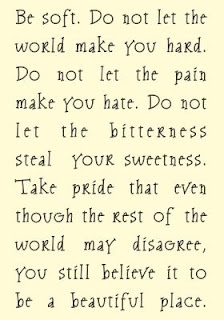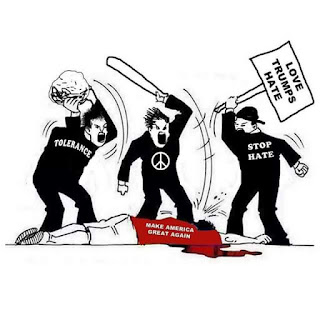The close relationship between Mohamed VI of #Morocco and @HillaryClinton backed up with subsidies for @ClintonFdn https://t.co/Vv3BAo7b8x— Ignacio Cembrero (@icembrero) October 27, 2016
Morocco charges two teen girls with homosexuality after they are allegedly caught kissing [11/3/16] #Islam #shariahttps://t.co/LeHFwhnytB— GlobalAwareness101 (@Mononoke__Hime) November 4, 2016
The Daily Caller, USA
written by Richard Pollock
Monday October 31, 2016
Hillary Clinton did two huge favors for Morocco during her tenure as secretary of state while the Clinton Foundation accepted up to $28 million in donations from the country’s ruler, King Mohammed VI, according to new information obtained by The Daily Caller News Foundation Investigative Group.
Clinton and Environmental Protection Agency (EPA) chief Lisa Jackson tried to shut down the Florida-based Mosaic Company in 2011, operator of America’s largest phosphate mining facility.
Jackson’s close ties and loyalty to the Clintons were revealed when she joined the Clinton Foundation’s board of directors in 2013, just months after she left the EPA. Jackson is also close to John Podesta, Clinton’s national campaign chairman.
Morocco’s state-owned phosphate company, OCP, would ostensibly have benefited from Jackson’s move to shut down Mosaic. Mohammed donated up to $15 million to the Clinton Foundation through OCP.
Clinton also relaxed U.S. foreign aid restrictions on Morocco, thus allowing U.S. funds to be used in the territory of Western Sahara where OCP operates phosphate mining operations. The aid restrictions stemmed from Morocco’s illegal occupation of the territory since 1974.
Morocco is repeatedly condemned for seizing the territory and for unilaterally extracting the country’s valuable minerals, impoverishing what’s left of the local Sahrawi Arabs.
No nation recognizes Moroccan sovereignty over the Western Sahara and the United Nation’s Security Council legal office and the International Court of Justice both demand that Muhammed withdraw his claim over the territory and end illegal extraction of minerals.
An email WikiLeaks made public last week illustrated how Clinton, while acting as secretary of state, negotiated an additional $12 million donation to the Clinton Foundation from Muhammed in return for holding the 2015 Clinton Global Initiative (CGI) meeting in Marrakech, Morocco. Another $1 million payment came from OCP to cover the expenses of the CGI meeting.
The regulatory assault against the U.S. phosphate industry began in earnest when Jackson launched a barrage of intimidating regulatory initiatives against Mosaic. Environmental concerns about phosphates date from 1979 but the EPA did little to address concerns related to phosphate mining until Jackson’s 2011 moves.
The regulatory assault on the U.S. phosphate industry encompassed several agencies, including the Department of Homeland Security (DHS). DHS aircraft flew at low altitudes over Mosaic’s central Florida operations in search of environmental problems. The EPA also threatened large Superfund penalties, which could have bankrupted Mosaic.
Phosphates are essential ingredients in fertilizers used in American farming. Closing or reducing Mosaic’s output would have cost tens of thousands of American jobs and injured the country’s agricultural productivity.
It also would leave the U.S. dependent upon foreign phosphate producers, but particularly Morocco’s OCP. The only other countries that mine phosphates are Russia, China and Saudi Arabia.
Rep. Dennis Ross, a Republican congressman who represents the Florida district where Mosaic operates, told TheDCNF he now sees why the EPA went after Mosaic.
“The tactics makes perfect sense as to why the EPA, under Lisa Jackson’s tutelage, targeted Mosaic’s phosphate operations in my district. I was never given any answers when I questioned Lisa Jackson about the EPA’s deliberate actions against Mosaic,” Ross told TheDCNF.
“Now I know why. An environmental concern never existed. This targeting was all done as a payback to Morocco for donating millions of dollars to the Clinton Foundation,” Ross said.
An uproar from Florida regulators push-back from the state’s congressional delegation and the agency’s tenuous legal position all forced the EPA to end its threats against Mosaic.
Rep. Marsha Blackburn, a Tennessee Republican who is vice-chairman of the House Committee on Energy and Commerce and a vocal critic of the Clinton Foundation, agreed with Ross, saying “these facts seem to reveal the possibility of more pay-to-play activities at the Clinton Foundation.”
“It would be especially troubling if the Clinton Foundation was working with the EPA to suppress the American phosphate industry in favor of Morocco. The EPA and Clinton Foundation should be forthcoming about their dealings with the Moroccan government and the American phosphate industry.”
Clinton’s 2012 support of a rider on the U.S. foreign aid bill permitting foreign aid to be sent to the Western Sahara arguably legitimized Moroccan occupation of territory and depopulated the Sahrawi Arabs. Native Moroccans were sent into the country by the government to extract the minerals.
The rider approved by Clinton said that U.S. foreign aid funds “may be used in regions and territories administered by Morocco,” meaning, the Western Sahara. The Western Sahara is classified a “Non-Self-Governing Territory” under international law.
“Previously, United States excluded Western Sahara from bilateral assistance to avoid seeming to endorse Moroccan control,” said Eugene Kontorovich, a professor at Northwestern University School of Law, in a legal review of occupied territories around the world.
Hans Corell, the U.N. Security Council’s Under-Secretary for Legal Affairs, said in January 2002 that “if further exploration and exploitation activities were to proceed in disregard of the interests and wishes of the people of Western Sahara, they would be in violation of the international law principles applicable to mineral resource activities in Non-Self-Governing Territories."
A Dec. 10, 2015 report by the International Court of Justice ruled that “the sovereignty of the Kingdom of Morocco over Western Sahara is not recognized by the European Union or its Member States, or more generally by the UN, and the absence of any international mandate capable of justifying Moroccan presence on that territory.”
But none of that mattered to former President Bill Clinton, who said nothing about the world’s condemnation of Morocco’s exploitation of the area for its phosphate industry, while speaking at the Clinton Foundation’s 2015 Marrakech CGI conference. Instead, he praised it.
“The Moroccans who are here will tell you that in the last several years, they have become the Saudi Arabia of phosphates, and what they have done with it, to diversify their economy and to make it part of a comprehensive strategy instead of another example of resource curse, is very impressive indeed,” Clinton said.
“Hillary Clinton sold her soul when they accepted that money,” reported Politico the day after the Marrakech CGI conference.
This will kill coal industry. RT @ChannelNewsAsia Morocco sees 'no turning back' for climate pact, despite Trump https://t.co/p6qee4AVXG— GlobalAwareness101 (@Mononoke__Hime) November 6, 2016
Politico, USAI asked why @wikileaks email contradict @ClintonFdn spin.— Kenneth P. Vogel (@kenvogel) November 4, 2016
Response:"It sounds like you are suggesting we misled you" https://t.co/zXRh7OJmC9
written by Kenneth P. Vogel
May 15, 2015
LAAYOUNE, Western Sahara—A day after Bill Clinton feted donors and dignitaries at an extravagant Moroccan feast under a warm Marrakech night sky, a group of local Sahrawi Arabs gathered for tea in a far more humble setting here to share their outrage that Clinton’s family foundation had accepted millions of dollars from a company owned by a government accused of repressing their people.
The four men used to work as miners for a subsidiary of OCP, the state-owned phosphate company that paid more than $1 million to sponsor the lavish outdoor gala and the concurrent two-day meeting of the Bill, Hillary and Chelsea Clinton Foundation headlined by the former U.S. president. Its purpose was to highlight efforts by the foundation , its donors and the Moroccan government to improve the lives of marginalized people in North Africa and the Middle East, and Bill Clinton opened the event by praising OCP, King Mohammed VI and “Morocco’s longstanding friendship to my family and to the United States.”
The former miners have seen a very different side of Morocco’s government and OCP. They say the company, formerly called the Office Chérifien des Phosphates, forced them to retire early and slashed their pensions, leaving them struggling to scrape by while hiring ethnic Moroccans for more senior jobs. The miners also told me how they had witnessed firsthand multiple examples of the “ arbitrary and prolonged detention” and “physical and verbal abuse” that the U.S. State Department says Moroccan authorities mete out to Sahrawis advocating for independence in Moroccan-occupied Western Sahara.
“Hillary Clinton sold her soul when they accepted that money,” declared Mohamed Lahwaimed, who gathered with the other former miners in a second floor walk-up in the Western Sahara capital of Laayoune, a modern-looking desert town with a population of 200,000 people about 500 miles southeast of Marrakech. Wearing traditional Sahrawi dara’a robes and lounging on worn pillows, they sipped green tea and spoke Arabic. “And now we are concerned that if Hillary Clinton wins the presidency of the United States of America, she will take the side of Moroccans even more,” Lahwaimed said through an interpreter.
Added fellow former miner Lahbib Salhi, “All the tainted money that Morocco has gathered from taking away our rights has been used to bribe the Clinton Foundation and the international community.”
The miners—and human rights activists interviewed in Laayoune—put real faces on abstract criticisms swirling half a world away around Hillary Clinton’s presidential campaign. The runaway favorite for the Democratic nomination, Clinton has found herself scrambling to answer suggestions that donations to the family’s sprawling $2 billion global charity influenced her actions as secretary of state and could compromise her objectivity if elected as president.
It’s certainly true that the Clintons have had a long—and lucrative—relationship with Morocco. Moroccan King Mohammed VI, who was traveling abroad during last week’s CGI meeting in Marrakech, nonetheless loaned one of his palaces to Bill and Chelsea Clinton to stay in during the meeting, according to attendees. The king was listed on a donor roll as having pledged as much as $500,000 to the Clinton Foundation to help build Bill Clinton’s presidential library (though the foundation says the donation never came through), while the state firm OCP has donated as much as $6 million over the years to the Clinton Foundation’s efforts. Both Clintons have publicly embraced the king in recent years as an example of an Arab moderate ruler with whom the U.S. should partner, and leaked Moroccan diplomatic cables show that Hillary Clinton during her tenure as secretary of state was seen by Rabat as among its most ardent supporters in the Obama administration.
There is no evidence that she tailored her official positions to suit Morocco’s preferences because of personal or financial relationships. But the overlap between her diplomatic portfolio and the funding for her family’s philanthropy illustrates the way nearly any foreign donations to the Clinton Foundation can be viewed through the prism of U.S. policy. And it highlights why countries, companies and individuals that could benefit from her past and possibly future public service might be inclined to support the foundation.
In fact, Hillary Clinton’s relationship with Morocco’s government was pivotal in brokering last week’s Clinton Global Initiative meeting in Marrakech, according to sources familiar with the foundation’s inner workings. They say that, as CGI was considering options including Hong Kong and Singapore for possible international meetings, the former secretary of state, then serving on the foundation’s board, talked to the king about the Moroccan option, which emerged as the frontrunner. Mrs. Clinton herself originally was listed as a meeting host, but she backed out as her presidential campaign approached, resigning from the foundation soon after officially entering the race.
As the campaign kickoff neared, the foundation proceeded with plans to hold the meeting in Marrakech with funding from OCP despite concerns of some foundation staffers about the political optics of affiliating with a state company tied to the occupation of Western Sahara and the controversial mining of a valuable natural resource, which some observers say violates international law. The approach the staffers settled on was “just to avoid using the word ‘Western Sahara’ and stay out of it,” said one source involved in the planning. “It’s not polite to your host.”
In a statement, the foundation said that it doesn’t have a stance on the Western Sahara dispute and suggested that the issue didn’t factor into the planning of the CGI meeting or the meeting itself. “CGI is not a political or diplomatic organization. CGI does not take political positions on issues and it’s critical to our mission that we do not,” said the statement. “The purpose of the CGI Middle East & Africa meeting—like all CGI meetings—is to encourage meaningful Commitments to Action that address many issues, and that will ultimately expand access to clean water, create new employment opportunities for young people, and empower women and girls.”
The foundation has not facilitated any projects in Western Sahara , officials said, and the plight of the territory was not mentioned at all during the official proceedings last week in Marrakech.
When Politico broached the issue with one CGI meeting participant who works in the region, he stalked off. Another participant who witnessed the exchange urged Politico to refer to “the Southern Provinces” of Morocco, not the Western Sahara, explaining “you don’t use those words here. Those are fighting words.”
***
Western Sahara, a vast but sparsely populated desert expanse along North Africa’s Atlantic coast, has one of the world’s largest reserves of phosphate, a fertilizer ingredient that has spiked in value in recent years, boosted by rising demand from international fertilizer manufacturers.





































No comments:
Post a Comment